Son Of A Son
Rene Rostaing
Ampodium Côte-Rôtie Syrah 2010
For all of you that drink; SQN, Cayuse & Horsepower, if you haven’t tried a well aged Rostaing, you are missing the best aspect of Syrah.
Côte de Rôtie translates in English into Roasted Slope. That’s exactly what this wine defines.
The Ampodium is a blend of 7-8 different Rhône vineyards. 2010 a dynamic vintage in Northern Rhône.
I bought this recently at auction and it has been decently stored but not quite ideally stored.
The nose reveals; roasted chestnut, stewed; blackberries, black raspberries, black plum, raspberries, dark cherries, strawberries on the high nose & backend of the fruit, used coffee grounds, soft leather, dry tobacco, savory meats, dark, moist soils, anise to black licorice, fresh sage & bay leaf with candied; dark, red, blue, purple florals in a field of lavender.
The palate is; fresh, ripe, juicy, elegant and nicely resolved. The structure, tension, balance and length are perfect. It is for the palates that love elegance & beauty, not brawn & ABV. Roasted chestnut, stewed; blackberries, black raspberries, black plum, raspberries, dark cherries, juicy, ripe strawberries backend of the fruit, used coffee grounds, soft leather, dry tobacco, savory meats, smoke, dark, moist soils, anise to black licorice, light purple cola, fresh sage & bay leaf with candied; dark, red, blue, purple florals in a field of lavender. The acidity is round & stream like. The finish is in perfect balance, harmony that settled softy yet speaks volumes.
Paired with the Cardiff Chipotle Tri-tip. The best Tri-tip we’ve had. You can order at CardiffCrack.com. Not inexpensive though. The best never is!
Photos of; me in the La Landonne Vineyard, Rene Rostaing and our tour with Pierre Rostaing in their La Landonne Vineyard. What an afternoon!
Producer notes, Pierre (son of Rene & now Winemaker) uses up to 100% of the stems - believing they contribute to Côte Rôtie’s ineffable perfume. Macerations last from 7 to 20+ days, and the wines enjoy a long élevage in a mix of barrels and time-honored pièce for aging, so that no more than 15% of a given vintage sees new wood. — 5 years ago
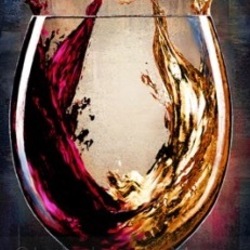
Peter Lehmann
The Pastor's Son Shiraz 2015
The final wine at the Peter Lehmann dinner at the Downs Club and the whole point of the dinner. Delectable: this new cuvée is called the Masterson and is a Barossa Valley Shiraz. Wine Pricing in Australia has become an arms race and this new Cuvée has set the benchmark at $1650 for a magnum - only available in magnum. This was sourced from a vineyard in the Moppa sub district of the Barossa owned by Glen Hammerling from vines planted in 1992 on original rootstocks, dry grown in deep sandy loam with ironstone over clay. The wine itself is an exercise in restraint. Matured in a large 2500 litre fourdre imparting minimal oak influence. You could happily drink this wine now or cellar for over 30 years. It is so well balanced. A brilliant wine but is it worth $1650? I think the pricing is too ambitious but the owner of Peter Lehmann, John Casella, the owner of export star, Yellow Tail, probably doesn’t care as he continues to make money from his budget line. 1458 magnums created and only 1000 released for purchase. — 6 years ago
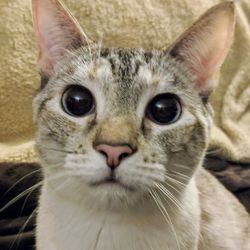
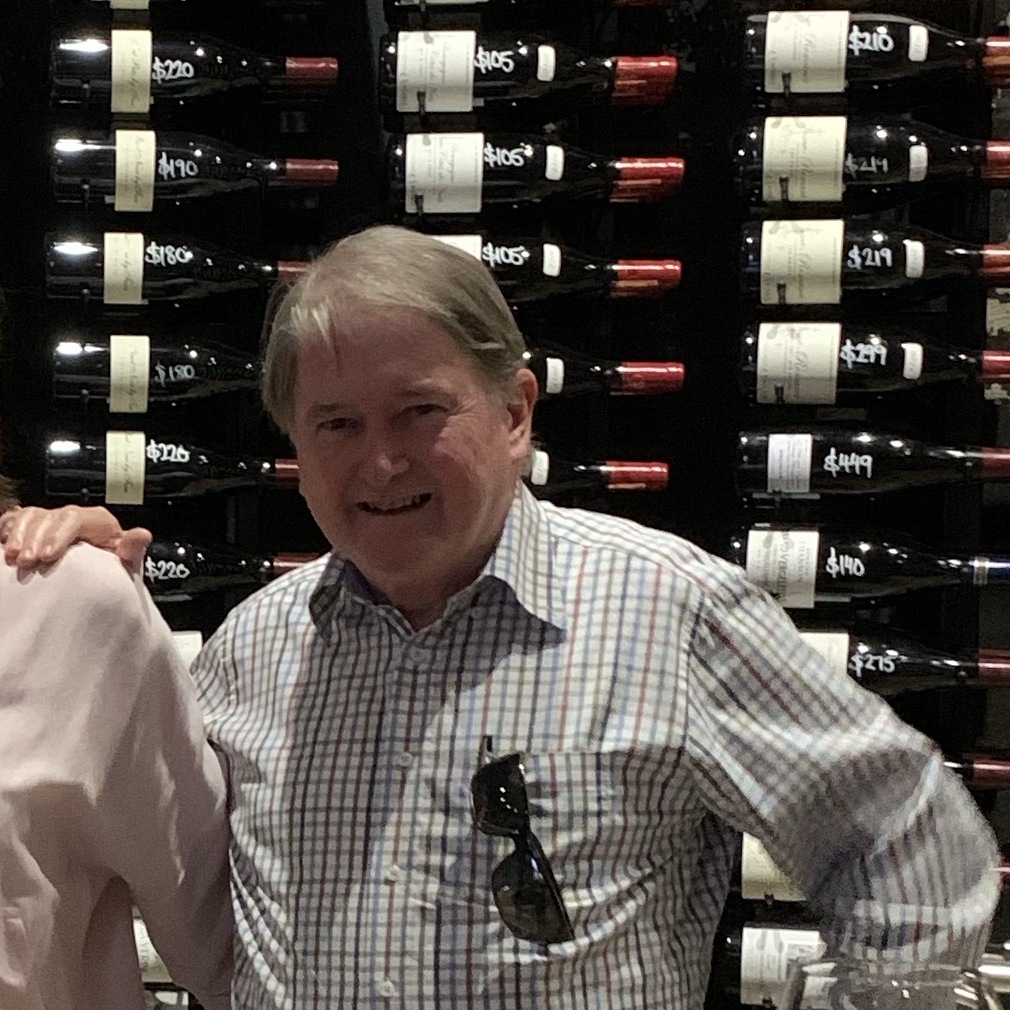
Lisanne van Son & Benjamin Serer
Hasta la Vizsla Pétillant Naturel White Blend
Delicious Pet Nat. A little citrusy and funky — 7 years ago
Shafer Vineyards
One Point Five Stags Leap District Cabernet Sauvignon 2015
The small winery is managed by father/son team John & Doug Shafer. A blend of 90% Cab Sauv, 7% Merlot & 3% Malbec, aged, 20 months, 100% new French oak. Beautiful fruit & floral aromas with hints of savory spice. On the palate cherry & raspberry flavors with a tight oak structure adding pepper, licorice & dusty cacao. Firm tight tannins, needs decanting now, lingering ending with fruit & slight mineral edge. Good now but 5 years of cellar rest with make wine pop! Had this with a Holiday Filet Mignon. Nice! — 7 years ago
Kivelstadt Cellars
Native Son Venturi Vineyard Charbono 2017
A wonderful nose, well balanced already, deep hues of purple jammie. On the palate, very smooth and a little acidic, a touch of tannins- not offensive at all. It is a delicious flavorful full-bodied wine. — 5 years ago
Château Petit-Gravet
Saint-Emilion Grand Cru Red Bordeaux Blend 2005
Just beginning to pass prime but still wondering. Brought back from France 6 years ago. Shared it With son Aaon & his wife Tory as part of Jodee’s & my 49th anniversary. — 5 years ago
V. Mitolo and Son
Waveform McLaren Vale Shiraz 2013
Delicious and unexpectedly bold with subtlety. A finessed, velvety finish with dark red fruit. 2013 has held up exceptionally well. — 6 years ago
Son of Man Sagardo
Basque Cider
Shake well. Pour from height. — 6 years ago
Kivelstadt Cellars
Wayward Son Lovett Vineyard "Orange" Wine
A pretty low-key orange wine. Nice cloudy, glowy goldfish hue. Strawberry, red cherry, white peach, tangerine, dried savory herbs. Mild tannins, moderate acidity. Approachable and very food-friendly. (This review is for the 2018 Mendocino Marsanne/Roussanne orange wine) — 6 years ago
Domaine des Baumard
Clos du Papillon Savennières Chenin Blanc 2015
In 1953, Jean Baumard acquired vineyard in Quarts de Chaume, in 1968, purchased substantial acreage in Savennieres. Today Jean’s son, Florent, manages the winery. Aromas of green fruits, floral and flinty notes. On the palate green apple, pear, melon and slight nutty flavors, well balanced with acidity. Medium+ length ending, no fluttering with fresh juicy mineral, just like the butterfly on the label! Will age well if you can resist opening. — 6 years ago
Quilceda Creek
Columbia Valley Cabernet Sauvignon 2005
Lovely fleshy notes on the palate with ultra silky yet persistent tannins. A little cold from the cellar. Beautiful texture - easy to love. I can see why Robert Parker gave this 100 points. Not overly Cabernet in a varietal sense but a rich, textured delicious wine still with a latent core giving at least another 5 years. Although I notice Harvey Steiman had a short drinking window through to only 2017. I bought this in the USA years ago when my son was at College - never seen it for sale in Australia. — 6 years ago
Kuleto Estate
Native Son Lake County Napa County Red Blend 2014
Dry, bold chocolate and cherry finish. Read the label for what at first seems pretentious but actually a humorous write up on this very nice wine that would be nice to keep in stock. — 8 years ago
Mitolo
7th Son McLaren Vale Grenache Shiraz 2012
Purchased at the winery about 4 or 5 years ago, we thought this was excellent - much better than some of the ratings we saw in the trade magazines. Intense but balanced, complex fruit with hints of eucalyptus that for me is a great trademark of wines from this region in Australia, this was really terrific. — 5 years ago

Son of a Butcher
California Red Wine
Soil and meat with a hint of berries. Paired well with lamb! — 6 years ago
Riverside Vintners
Powell & Son Barossa Valley Grenache Blend 2016
Really great nose with a hint of funk. Loved it! — 6 years ago
Louis Roederer
Cristal Brut Champagne 1999
Y Rousseau
Son of a Butcher Tannat Blend
Tims wine. Very smooth and rich. Great wine. — 6 years ago
Didier Dagueneau
Buisson Renard Pouilly- Fumé Sauvignon Blanc 2015
2015 ‘Buisson Renard’ by Didier Dagueneau, is a spectacular effort. Now headed by Didier’s son, Louis-Benjamin, Dagueneau wines continue to set the standard for the Pouilly-Fume region. The wine shows wonderful flinty and damp earth tones with lemon oil drenched sourdough bread on this marvelous bouquet. The rich, almost unctuous texture to this wine, truly satisfies. Lemon zest, beeswax, ripe pear and starfruit flavors with wet stone and smoky mineral undertones all nicely amalgamate on the palate. Intense and showing beautifully in its youth, this dazzling Sauvignon Blanc will have an exceedingly long life in the cellar. Drink 2019-2033- 94 — 6 years ago
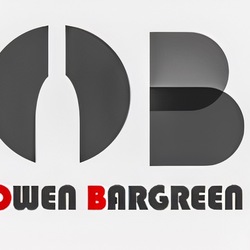
Gaec Henri Bonneau et Fils
Les Rouliers Vin de Table de France Grenache Blend
From the enigmatic Henri Bonneau who sadly passed away a few years ago. Winemaking now handled by his son. Medium to dark crimson. This is one of his lesser Cuvées after the legendary Celestines and then Marie Beurrier and is classified as NV. Stacks of Garrigue - the combo of Rosemary Thyme and loam - love CDP. Also a muted dusty raspberry note and after a few hours in the decanter a lovely floral perfume with liquorice notes. Silky and long. — 7 years ago




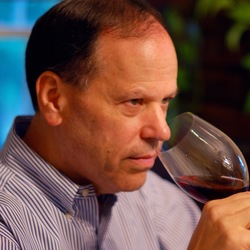



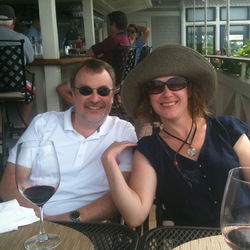


MD Mondo
Nice berry. But aging. Seems just a smidge past. More vacation time with my brother, B, son, A, and husband S. — 5 years ago